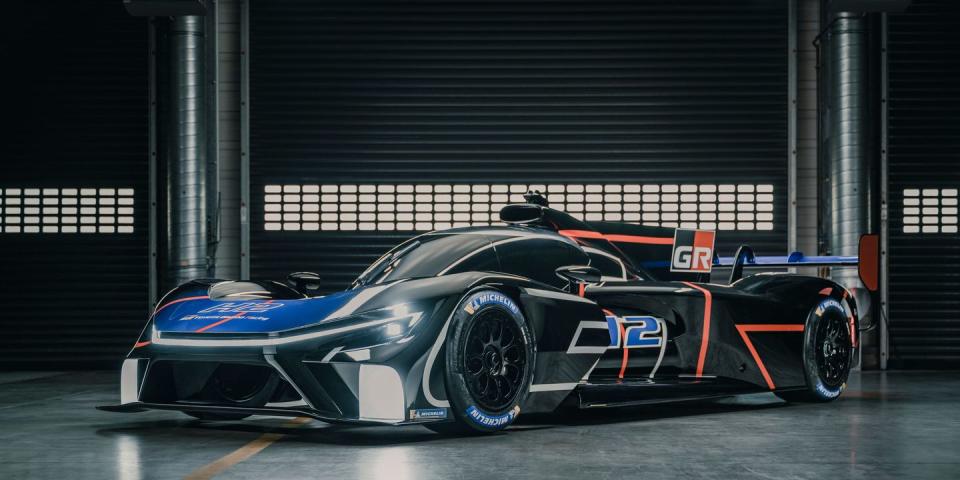Toyota Unveils Hydrogen-powered GR H2 Racing Concept for Le Mans in 2026

No automaker has placed a bigger bet on hydrogen-powered vehicles than Toyota. And if all goes according to plan, that bet will mean the legendary endurance race that Toyota has basically owned for the past decade will see a competitive hydrogen-engined race car in just a few years.
On Friday, ahead of this weekend’s 100th running of the 24 Hours of Le Mans, Toyota pulled the veil off the“mystery car” that people had been wondering about all week. It’s the GR H2 Racing Concept, a planned prototype race car powered by a hydrogen-hybrid engine that it hopes will compete in at Circuit de le Sarthe in three years.
“One of the many benefits to hydrogen fuel is how light it is—less BOP,” outgoing Toyota president and incoming chairman Akio Toyoda said at the race’s opening press conference, a smirking shot at the Balance of Performance adjustment that led to a weight penalty for the team this year.
Few technical details about the concept were released Friday, though it is slightly longer and wider than the GR10 Hybrid car competing this weekend. Toyota Gazoo Racing officials said the concept was developed in response to the recent addition of a new hydrogen category at Le Mans starting in 2026—and one the Japanese giant no doubt hopes to own as well.
“My goal is carbon neutrality in motorsports without sacrificing performance or excitement,” Toyoda added during the press conference. “We wouldn’t be investing in this technology if I didn’t think we could win with it.”
Last month, Pierre Fillon, president of the Automobile Club de l’Ouest, confirmed that in three years both hydrogen-electric vehicles and hydrogen internal combustion vehicles will be able to enter the 24 Hours of Le Mans. Toyota’s GR H2 Racing Concept falls into the latter category, and it boasts a hybrid-electric drivetrain like Toyota’s current prototype race cars do as well.
In case you’re unfamiliar, those cars are exactly what they sound like: EVs powered by liquid-hydrogen fuel cells, such as the Toyota Mirai, and internal-combustion engine vehicles that run on liquid hydrogen fuel. Hydrogen internal combustion engines do not produce CO2, the primary greenhouse gas produced by burning petroleum.
That’s also what powers the GR Corolla H2 Concept that Toyota runs in the Super Taikyu Series, and the automaker has also competed with other hydrogen variants of that same car since 2021.

 Yahoo Autos
Yahoo Autos 